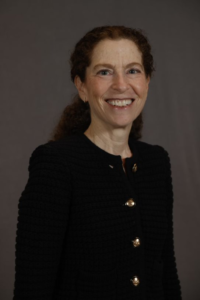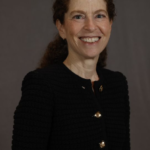During ACR Convergence 2023 in San Diego, Liana Fraenkel, MD, MPH, assumed the presidency of the Rheumatology Research Foundation. For the past two years, Dr. Fraenkel has served as the Foundation’s vice president. She is also an adjunct professor of medicine at Yale School of Medicine, New Haven, Conn., and the director of medical education and patient-centered population health research at Berkshire Health Systems in rural western Massachusetts.
The Foundation was established in 1985 as the ACR Research & Education Foundation. Since its inception, the Foundation has become the largest private funding source of rheumatology research and training programs in the U.S. and has consistently garnered a four-star Charity Navigator rating for its adherence to transparency. The Foundation has awarded more than 135 grants for new education, training, career development and research this fiscal cycle and is committing $13 million to fund its current class of award recipients.

Dr. Fraenkel
Dr. Fraenkel is eager to grow the Foundation’s portfolio and to advance its mission and strategic plan during her tenure. During a recent conversation, her enthusiasm for the Foundation’s work was infectious.
The Rheumatologist (TR): You mentioned in a recent TR article that you would not have had your career without the support of the Foundation. Could you elaborate about those specifics?
Dr. Fraenkel: Although I’m known for being positive and idealistic, that [statement] is 100% true and not an exaggeration. I can remember in detail how I felt about this and why. When I was starting my career, I was really interested in a niche category that wasn’t well acknowledged in clinical research at our typical [National Institutes of Health] NIH-funded institutes. I was intrigued about why patients make the decisions they do. For example, I saw that patients with lupus were refusing immunosuppressive therapy that could potentially save their kidneys. I became very interested in medical decision making, which was not something typically funded in the rheumatology community. When I started doing work in this area and applied to the Foundation [for funding], it was critical at that point in my career that [my work] could be funded. This initial funding allowed me to develop expertise in this area that then enabled me to go on and get future funding and have a career as a researcher. In fact, I still have funding from the Foundation.
TR: So this type of funding was helpful to you. How can that be advantageous for others?



